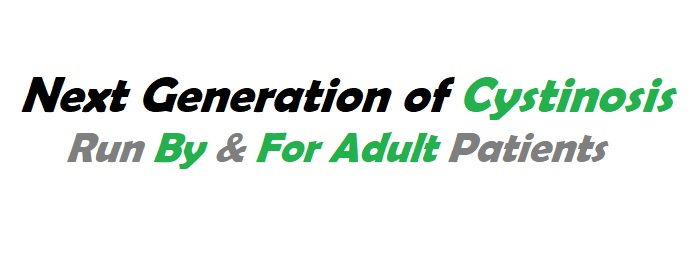Have you ever felt lost, isolated, sad, and depressed? Are you struggling to live your fullest life?
I hear you, I am experiencing this as well.
My name is Mika Jayne Covington. I’m 29 years old and I live with an ultra-rare disease called cystinosis. I also live with depression and anxiety. I am a transgender woman and my pronouns are she, her, and hers.
I have felt lost because of living with the unknowns of an ultra-rare chronic disease. Specifically, I am charting a new course in the life journey of a cystinosis patient. I am part of the first generation of cystinosis patients to live into adulthood and thus I have no idea what lies ahead for me. All that I do know is that the ultimate path of cystinosis is death and with death the unknown of what comes after.
I have felt isolated because of cystinosis. Thus, there are very few adults living with the disease. Living with a disease similar to cystinosis creates a feeling of isolation because many of my peers have no comprehension of what it is like to constantly fight with insurance companies and pharmacies, to take over twenty medications, and to spend nearly a third of my life in hospitals, clinics, doctors’ offices, and pharmacies.
I have felt sad and depressed. Cystinosis stops me from doing many of the activities I would like to do, such as working on political campaigns, finishing college, and traveling the world. The disease stops me from being spontaneous or just being a young adult. I feel as though I was robbed of my childhood.
I have struggled not only because of cystinosis but also because of the side effects of the many medications that I take. I live with frequent headaches, nausea, vomiting, dizziness, shortness of breath, and more. These side effects interfere greatly with my quality of life and my ability to complete daily tasks.
I know that I’m not the only one dealing with this. According to a Cystinosis Research Network (CRN) 2011 survey, 35.7% of 19 to 25-year-olds living with cystinosis experienced sadness and depression and 16.7% of 26 to 40-year-olds experienced sadness and depression. Additionally, according to that same 2011 survey, 28.5% of 19 to 25-year-olds and 38.4% of 26 to 40-year-olds feel that cystinosis is a burden (Living with Cystinosis).
Unfortunately, there is no organization within the rare disease community that specifically addresses the needs of adults living with cystinosis. There are two organizations in the United States that do provide support for parents and families with children with cystinosis.
Therefore, my friend Rebekah Palmer, myself, and others have decided to build a new organization for the cystinosis community, called the Next Generation of Cystinosis.
Next Generation of Cystinosis (Next-Gen Cystinosis) is a nonprofit volunteer-run organization. Next-Gen Cystinosis’s mission is to create safe spaces for adults 18 years and older affected by cystinosis to engage in open and honest dialogue about the plethora of issues that affect them.
Next-Gen Cystinosis’s purpose is to
- provide adults 18 years and older affected by cystinosis support in dealing with the issues and concerns that specifically affect them;
- to provide emotional and psychological support and education;
- to provide evidence-based, medically accurate sexual and reproductive health education; and
- to provide guidance on where to find information and resources to adults affected by cystinosis

